20 Nov 2018 - {{hitsCtrl.values.hits}}
Engulfed in social stigma and discrimination, HIV/AIDS is an issue society still addresses in hushed voices despite the progression we claim to have achieved globally. In honour of World AIDS Day 2018 (Celebrated on December 1) the National STD/AIDS Control Programme (NSACP) has partnered up with their stakeholders, NGO partners and the private sector to approach this disease with open hearts and minds.
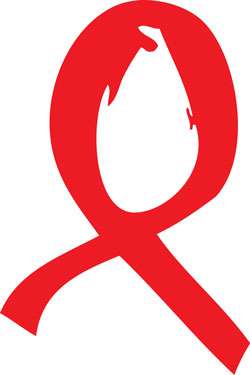
World AIDS Day (WAD) originated in 1988 at the Summit of Ministers of Health on Programmes for AIDS Prevention. This year’s theme has been announced as ‘Know your status.’ According to the statistics released by the World Health Organization (WHO), over 70 million people have been infected with the HIV virus and about 35 million people have died resultantly since its origin. These inconceivable figures have paved the way for a global campaign which follows a fast tracked strategy to end AIDS by 2030. This incorporates an ambitious 90-90-90 treatment target which is as follows:
Having maintained a relatively impressive low prevalence rate, the Sri Lankan authorities involved in this campaign have moved one step further and modified the global theme to read “Know your status to End AIDS by 2025.”
The NSACP is well aware of the social and cultural forces which erect a wall between victims and non-victims of AIDS. Such pressures have driven sufferers to deny their illness and shy away from getting their selves tested. It is therefore a foremost target of the NSACP to “normalize testing” and eliminate society’s unfounded fear toward the disease. Dr. Iresh Jayaweera of the World AIDS day organizing team, explained that if HIV testing was perceived as something as ordinary as “a full blood count test or a fasting blood sugar test,” the social stigma that has been thus far impermeable, may be dissolved greatly. He explained that battling these social factors was the first step toward achieving medical targets. For, “only 2/3rd of people having HIV know their status, 1/3rd is still out there- who if diagnosed and treated will allow us to virtually eliminate AIDS by 2025.”
Statistics show that over 3600 people are HIV infected within Sri Lanka, of them only around 1355 are under care. Although these statistics may seem trifling there is no room for complacency
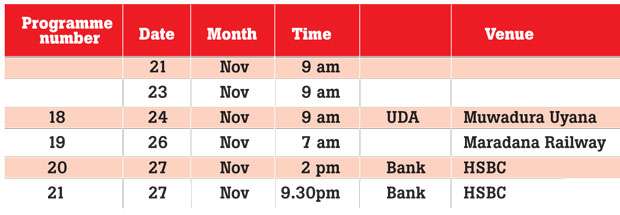
Lack of awareness
Only 2/3rd of people having HIV know their status, 1/3rd is still out there- who if diagnosed and treated will allow us to virtually eliminate AIDS by 2025
Dr. Iresh Jayaweera |
HIV/AIDS is often associated with a defeatist attitude, owing to the lack of awareness concerning treatment possibilities. Despite our unlimited access to information, AIDS is still considered synonymous with a death sentence. In spite of our paramount advancement, AIDS is still a sensitivity which tests humanity. The campaigns carried out by the NSACPA will annihilate age-old myths regarding the disease. “There is hope” were the words of Dr. Chandrika Jayakody- the National Programme Consultant for IEC and Condom Promotion. She added that through treatment, an HIV positive patient is now able to attain “a quality of life (and life expectancy) that is almost the same as of a normal person.”
Owing to local cultural values that are deeply embedded in society, these authorities realize that a change in how people view AIDS cannot be made in the near future. However this is a reality against which the patients will be sheltered from, owing to confidential and anonymous testing procedures. Dr. Iresh stressed on the extremely secure doctor- patient relationships beyond which one’s HIV status will not be disclosed to anyone.
Furthermore, the information we generally possess regarding the disease itself is limited, thereby subjecting us to more misconception and misjudgement. Dr. Chandrika spoke of a lengthy asymptomatic period a patient may experience after contracting HIV/AIDS. This may subject him/her to a false sense of security and keep them from getting tested and/or treated. The hesitation surrounding this primary step of ‘getting tested’ is what the campaign hopes to obliterate.
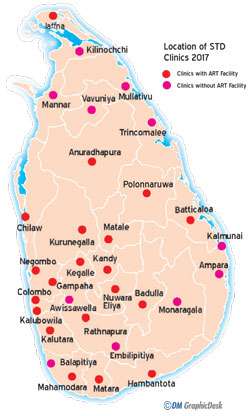
33 full-time STD clinics
Under the NSACP, there are 33 full-time STD clinics and 23 branches around the country. Of these, 21 clinics provide HIV treatment free of charge. Meanwhile, the NSACP is also tackling the problem of stigma at its roots. It is extremely important that an individual’s perception of victims of diseases like HIV/AIDS is moulded at their core. Understanding this, the NSACP in cooperation with the Education Ministry has visited 192 schools island-wide conducting sessions to instil awareness among the youth. Additionally, the multi-sectoral unit under this National programme conducts TOTs (Training of Trainers) which enable teachers to be prepared to educate their students in the most wholesome way possible. Blood testing programmes, condom promotion and NGO- supported workshops have been organized. Vulnerable sectors like the migrant, the youth, tourists and prisons have especially been targeted. .However this is just the beginning. The aspiring team is currently working on other developments which will dilute the pessimism, the prejudice and the trepidation of the disease. Preventive and effective printed messages on school text books and informative video clips are a few other budding projects.
Through treatment, an HIV positive patient is now able to attain a quality of life (and life expectancy) that is almost the same as of a normal person
Dr. Chandrika Jayakody |
Statistics show that over 3600 people are HIV infected within Sri Lanka, of them only around 1355 are under care. Although these statistics may seem trifling in relation to the victim count in African regions which is close to 26 million, there is no room for complacency. Sri Lanka is one of the countries in South East Asia with a rising HIV incidence. Every week 5-6 new infections are reported to the NSACP. Dr. Iresh stressed on a possible increment in the local prevalence rate in future considering the population pyramid which depicts the sexually active youth outnumbering the aged. He also explained how due to migration and tourism being portals for STDs, society’s rapidly changing sexual patterns, homosexuality and the role that social media plays in this respect, the condition may only worsen. These are evidentiary reasons this campaign is needed now more than ever.
The reality is that we are striking down the diseased. The vision is that we strike down the disease. However this is unattainable unless certain walls are broken down and a different mindset is practised. Driven by these targets, the NSACP is equipping our community with armour of awareness and vigilance. In the spirit of acceptance, the NSACP together with their stakeholders will be organizing a walk on the 1st of December in honour of the 30th anniversary of World AIDS day. The Walk will commence at 8.30 am in the front lawn area of the Colombo Municipal Council and will reach its conclusion in the front lawn of BMICH where it will be followed by a meeting. Kick starting a series of efforts to eliminate HIV/AIDS from being a public health problem by 2025, these trailblazers request your support in making the changes we urgently need.
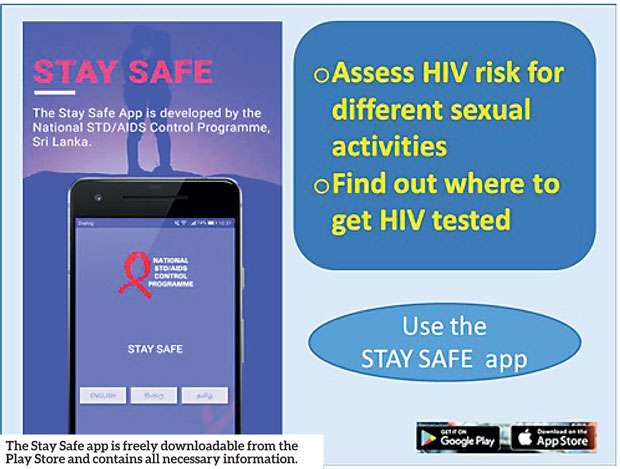
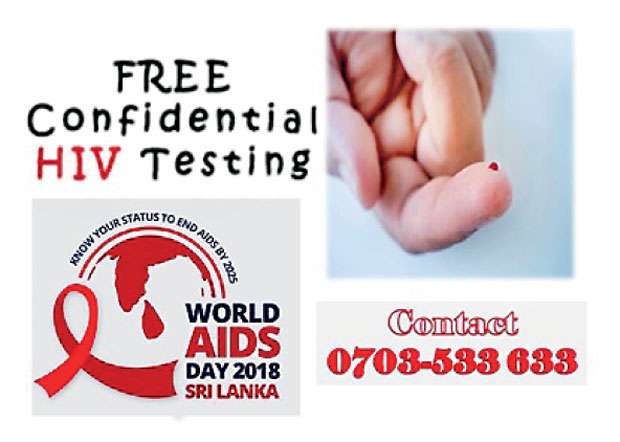
30 Nov 2024 2 hours ago
30 Nov 2024 4 hours ago
30 Nov 2024 4 hours ago
30 Nov 2024 6 hours ago
30 Nov 2024 9 hours ago